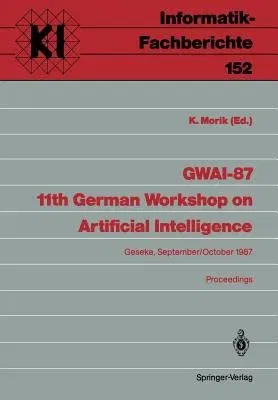Gwai-87 11th German Workshop on Artificial Intelligence: Geseke, September 28-October 2, 1987 Proceedings (1987)Paperback - 1987, 18 September 1987

Qty
1
Turbo
Ships in 2 - 3 days
In Stock
Free Delivery
Cash on Delivery
15 Days
Free Returns
Secure Checkout
Part of Series
Informatik-Fachberichte
Part of Series
Subreihe Kunstliche Intelligenz
Part of Series
Informatik-Fachberichte / Subreihe Ka1/4nstliche Intelligenz
Part of Series
Informatik-Fachberichte / Subreihe Kunstliche Intelligenz
Part of Series
Subreihe Künstliche Intelligenz
Print Length
405 pages
Language
GermanEnglish
Publisher
Springer
Date Published
18 Sep 1987
ISBN-10
3540183884
ISBN-13
9783540183884
Description
Product Details
Book Edition:
1987
Book Format:
Paperback
Country of Origin:
DE
Date Published:
18 September 1987
Dimensions:
24.41 x
16.99 x
2.18 cm
ISBN-10:
3540183884
ISBN-13:
9783540183884
Language:
German
English
Location:
Berlin, Heidelberg
Pages:
405
Publisher:
Series:
Weight:
666.78 gm

